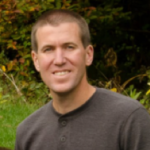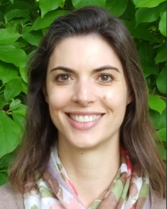
- This event has passed.
State Efforts to Assess and Address 1,4-Dioxane through Drinking Water, Ground Water, and Clean Water Programs
June 5, 2018 @ 1:00 pm - 2:30 pm EDT
State Efforts to Assess and Address 1,4-Dioxane through
Drinking Water, Ground Water, and Clean Water Programs
Date: Tuesday, June 5, 2018
Time: 1:00 to 2:30 pm (eastern)
The purpose of the webinar is to share information about state efforts to assess and address 1,4-dioxane, an unregulated contaminant that is causing states and water utilities to become increasingly concerned about potential health impacts from elevated levels of 1,4-dioxane in both groundwater and surface water drinking water sources. This webinar also builds on the efforts of ASDWA, the Association of Clean Water Administrators (ACWA), the Ground Water Protection Council (GWPC), and EPA to share and promote Clean Water Act and Safe Drinking Water Act (CWA-SDWA) coordination activities across state and EPA water programs.
Intended Audience: State, interstate, tribal, and federal water programs, water utilities, technical assistance providers, and anyone else who would like to participate.
Agenda
New Hampshire: Brandon Kernen will present how the solvent stabilizer 1,4-dioxane has emerged as an unexpected groundwater contaminant at many sites and in drinking water supplies in New Hampshire and nationally. Although this contaminant has been used as a stabilizer for certain types of chlorinated solvents, most historic groundwater monitoring and remediation did not adequately address this contaminant. Additionally, 1,4-dioxane is an impurity in numerous personal care products and has been detected in treated municipal wastewater effluent. Over the last ten years, toxicity assessments coupled with new analytical techniques which achieve lower reporting limits for this compound have revealed that this highly mobile, recalcitrant and probable carcinogenic contaminant warrants the attention of drinking water professionals. This presentation will cover:
- Uses, sources, occurrence and fate and transport of 1,4-dioxane
- Toxicity information and federal and state regulations and guidance
- Laboratory analytical techniques
- Examples of contaminated sites and sources of drinking water
- Treatment options and costs
North Carolina: Rebecca Sadosky will present information about efforts by the North Carolina Division of Water Resources to assess and address 1,4-Dioxane in multiple river basins throughout the state. These efforts included a two-year study that was collaboratively designed by Safe Drinking Water Act and Clean Water Act staff to examine ambient concentrations, identify potential sources, and document water quality improvements due to abatement efforts of 1,4-dioxane in major surface waters of the Cape Fear River basin. Three of the four study areas were located immediately downstream of domestic wastewater treatment facilities, indicating that these facilities were likely conduits for 1,4-dioxane from industrial sources into surface water. The study findings were communicated to effected municipalities, project partners, and the interested public. During the second year of the study, quarterly sampling indicated a reduction of 1,4-dioxane concentrations in many areas of the basin. Further reductions will be necessary to achieve federal and state health advisory levels for 1,4-dioxane in drinking water supplies. The Division of Water Resources study is continuing in the Cape Fear River basin and has now expanded into the Yadkin and Neuse River basins.
Presenters
 Brandon Kernen is the Manager of the Hydrology and Conservation Program at the New Hampshire Department of Environmental Services. His responsibilities include oversight of programs associated with groundwater withdrawals, groundwater discharges, water use reporting, water conservation, water well construction and well driller licensing. He also has coordinated Department initiatives associated with the occurrence of emerging contaminants of concern in the environment, drought management and the impact of rock blasting on private and public drinking water supplies. Brandon has over 25 years of professional experience and a graduate degree in Civil and Environmental Engineering from Tufts University and an undergraduate degree in Hydrology and Water Resources from the University of Arizona. He is a licensed Professional Geologist.
Brandon Kernen is the Manager of the Hydrology and Conservation Program at the New Hampshire Department of Environmental Services. His responsibilities include oversight of programs associated with groundwater withdrawals, groundwater discharges, water use reporting, water conservation, water well construction and well driller licensing. He also has coordinated Department initiatives associated with the occurrence of emerging contaminants of concern in the environment, drought management and the impact of rock blasting on private and public drinking water supplies. Brandon has over 25 years of professional experience and a graduate degree in Civil and Environmental Engineering from Tufts University and an undergraduate degree in Hydrology and Water Resources from the University of Arizona. He is a licensed Professional Geologist.
 Rebecca Sadosky is the Drinking Water Protection Program Coordinator in the Public Water Supply Section of North Carolina’s Department of Environment and Natural Resources where she has worked for over 11 years. Rebecca also leads the Section’s efforts on security and emergency preparedness and response. As the program coordinator, she oversees the Wellhead Protection Program, Source Water Assessment Program, Source Water Protection Planning process, and activities related to unregulated contaminants in drinking water. She has chaired the state’s Water and Wastewater workgroup for Electromagnetic Pulse preparedness, participated on national workgroups related to harmful algal blooms, unregulated contaminants, and climate change preparedness, and is the state’s liaison for the Unregulated Contaminant Monitoring Rule. Rebecca has a B.S. in Environmental Engineering from Wilkes University, a M.S. in Environmental Engineering from Duke University and a Ph.D. in Environmental Engineering from the University of Massachusetts at Amherst.
Rebecca Sadosky is the Drinking Water Protection Program Coordinator in the Public Water Supply Section of North Carolina’s Department of Environment and Natural Resources where she has worked for over 11 years. Rebecca also leads the Section’s efforts on security and emergency preparedness and response. As the program coordinator, she oversees the Wellhead Protection Program, Source Water Assessment Program, Source Water Protection Planning process, and activities related to unregulated contaminants in drinking water. She has chaired the state’s Water and Wastewater workgroup for Electromagnetic Pulse preparedness, participated on national workgroups related to harmful algal blooms, unregulated contaminants, and climate change preparedness, and is the state’s liaison for the Unregulated Contaminant Monitoring Rule. Rebecca has a B.S. in Environmental Engineering from Wilkes University, a M.S. in Environmental Engineering from Duke University and a Ph.D. in Environmental Engineering from the University of Massachusetts at Amherst.

